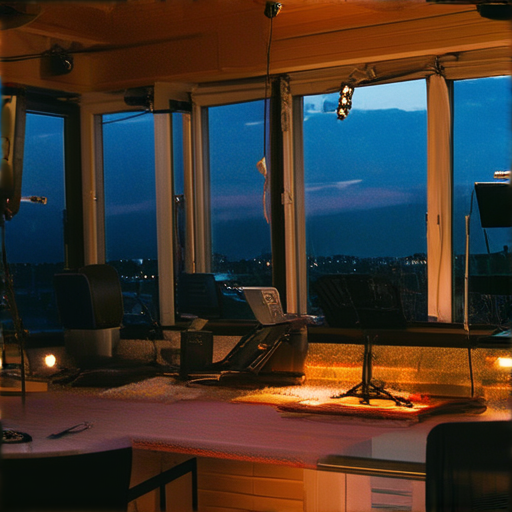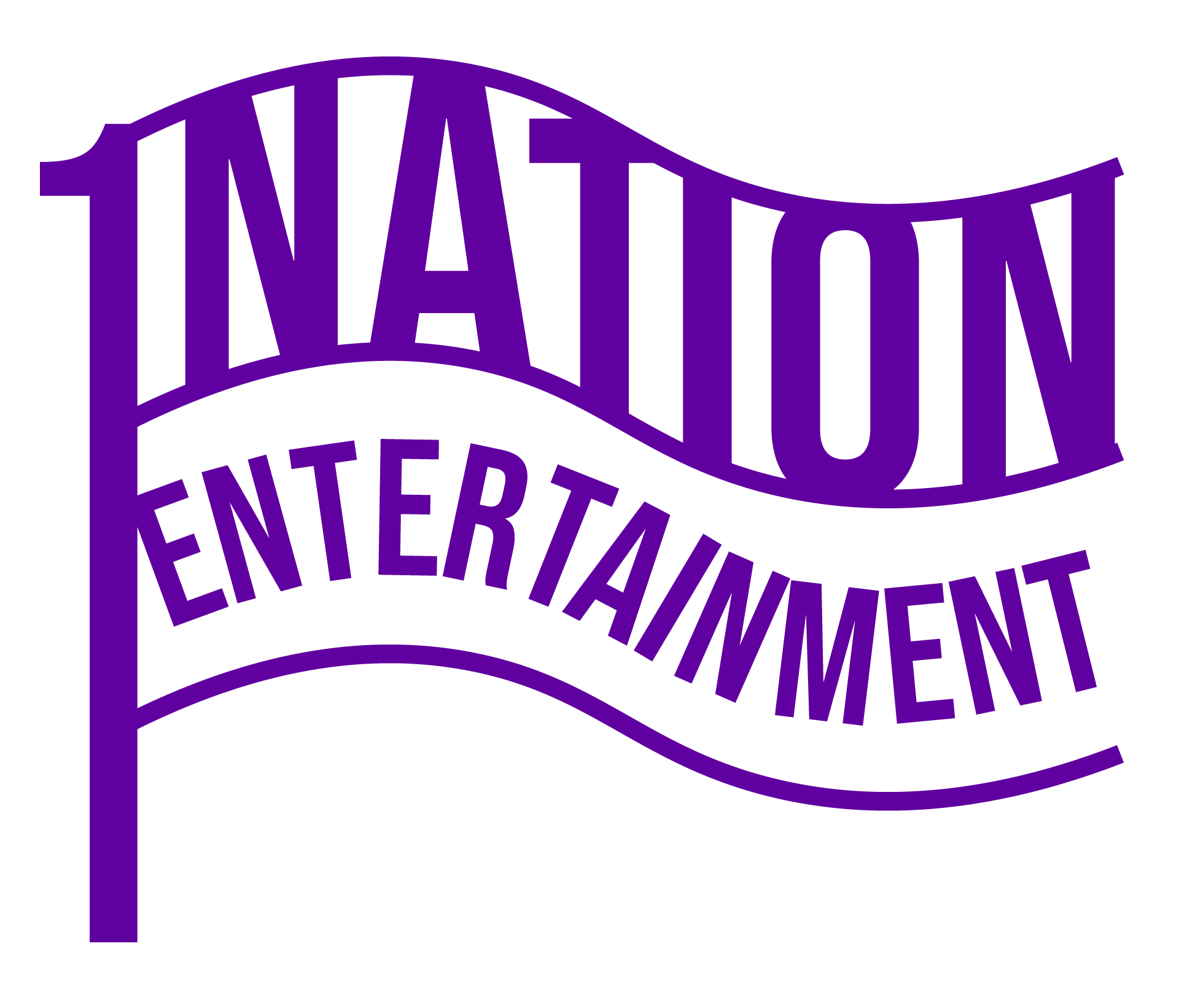Delving into the world of music artist interviews can be both exhilarating and intimidating, especially for those new to the scene. Aspiring journalists, music enthusiasts, and industry professionals alike often find themselves pondering the same question: how do you craft meaningful conversations with talented musicians? Effective music artist interviews require a delicate balance of preparation, creativity, and genuine curiosity, allowing participants to tap into the artist’s unique experiences, inspirations, and perspectives.

Interviewing a Music Artist: A Comprehensive Guide
To effectively interview a music artist, it’s essential to prepare thoughtful and engaging questions that delve into their creative process, inspirations, and experiences.
- Preparation is Key: Research the artist’s background, discography, and recent projects to understand their unique perspective and style.
- Develop Open-Ended Questions: Encourage the artist to share their thoughts and feelings through open-ended questions that can’t be answered with a simple “yes” or “no.”
- Explore Their Creative Process: Ask about their songwriting techniques, collaboration methods, and how they approach recording sessions.
- Inquire About Inspirations: Discuss the artists who have influenced their work, personal experiences that have shaped their music, and how they stay motivated.
- Discuss Performance Anxiety: Explore how they manage stage fright, how they prepare for live performances, and what they do to overcome nerves.
- Favorite Venues and Collaborations: Ask about their preferred performance spaces, dream collaborations, and how they select venues for their shows.
- Realizing Their Passion: Inquire about the moment they knew they wanted to pursue music as a career, and how they balanced their passion with the challenges of the industry.
Tips for Conducting a Successful Interview
- Be Respectful and Professional: Treat the artist with respect, arrive prepared, and maintain a professional demeanor during the interview.
- Listen Actively: Pay attention to the artist’s responses, ask follow-up questions, and show genuine interest in their experiences.
- Keep the Conversation Flowing: Use transitional phrases to guide the conversation, and avoid interrupting or dominating the discussion.
- Take Notes and Record the Interview: Document the conversation to ensure accuracy and capture valuable quotes for future reference.
- Edit and Refine the Content: Review the interview transcript, edit for clarity and coherence, and refine the content to create a compelling narrative.
Best Practices for Writing Engaging Interviews
When writing the interview, focus on crafting a narrative that showcases the artist’s personality, creativity, and experiences. Use descriptive language, vivid imagery, and storytelling techniques to bring the reader into the conversation.
- Use Quotes Effectively: Incorporate meaningful quotes from the artist to add depth and insight to the story.
- Create a Compelling Narrative: Weave together the artist’s responses to create a cohesive and engaging narrative that captures the essence of their music and personality.
- Edit for Clarity and Coherence: Review the content, edit for grammar and punctuation errors, and refine the narrative to ensure it flows smoothly.
- Add Visual Elements: Include images, videos, or other multimedia elements to enhance the reader’s experience and break up the text.
Asking the Right Questions in a Music Interview
We’ve all been there – sitting down with our favorite musician, eager to learn more about their creative process, inspirations, and experiences.
- What inspired you to pursue a career in music?
- Can you describe your musical background and how it shaped your style?
- Who are your biggest influences, and how have they impacted your music?
- What is your songwriting process like?
- Do you have a specific routine?
- How do you approach interpreting and performing a song?
- What challenges have you faced in your career, and how did you overcome them?
- Can you walk us through your recording process, from pre-production to final mix?
- How do you balance creativity with commercial viability in your music?
- What advice would you give to aspiring musicians just starting out?
- Are there any upcoming projects or collaborations that you’re excited about?
- How do you stay connected with your fans and engage with them online?
- What’s next for you – any plans for touring, releasing new music, or exploring other creative ventures?
By asking these types of questions, you’ll gain valuable insight into the artist’s thought process, creative decisions, and personal experiences, making for a more engaging and informative interview.
Tips for Conducting a Great Music Interview
- Research the artist beforehand: Familiarize yourself with their discography, past interviews, and public statements to come up with thoughtful and informed questions.
- Be respectful and professional: Treat the artist with respect and professionalism, and avoid asking invasive or prying questions.
- Listen actively: Pay attention to the artist’s responses and follow up with further questions to delve deeper into the topic.
- Keep it concise: Don’t feel obligated to ask every possible question – keep the conversation flowing and focused on the most interesting topics.
- Have fun: Remember that music interviews are meant to be enjoyable and enlightening for both parties involved!
Additional Resources
For more tips on conducting great music interviews, check out our Music Interview Tips guide, which covers everything from preparation to follow-up.
Additionally, be sure to explore our latest music news and music reviews sections for the latest updates and insights from the music industry.

Singer Interview Questions
We’re excited to share our expertise on what questions are typically asked during a singer interview.
-
Introduction and Background
- Can you tell us about your background and how you got started in music?
- What inspired you to become a singer, and what drives your passion for music?
- How would you describe your unique sound and style?
-
Music Experience and Training
- What kind of formal training have you received in singing, and how has it helped you develop your skills?
- Can you share any notable performances or experiences you’ve had as a singer?
- How do you stay motivated and inspired to continue growing as a musician?
-
Artistic Vision and Goals
- What are your goals for your music career, and how do you see yourself evolving as an artist?
- Can you walk us through your creative process when writing songs or preparing for a performance?
- How do you balance your artistic vision with commercial appeal and audience expectations?
-
Collaborations and Influences
- Who are some of your favorite collaborators or influencers in the music industry, and why?
- Can you share any memorable collaborations or experiences working with other artists?
- How do you incorporate feedback and criticism into your creative process?
-
Challenges and Overcoming Obstacles
- What are some of the biggest challenges you’ve faced in your music career, and how did you overcome them?
- Can you share any stories of perseverance or resilience in the face of adversity?
- How do you handle criticism or negative feedback from others?
-
Conclusion and Future Plans
- Is there anything you’d like to share with our readers or promote your upcoming projects?
- What advice would you give to aspiring singers just starting out in their careers?
- Where can fans find you online and stay up-to-date with your latest music and tours?

How to Become a Music Interviewer
To become a music interviewer, you need to develop strong communication skills, have a deep understanding of the music industry, and be able to manage your time effectively.
- Develop Strong Communication Skills: As a music interviewer, you’ll be interacting with various personalities, including musicians, producers, and industry professionals. Develop your communication skills through practice, training, or taking courses in journalism, public speaking, or broadcasting.
- Gain Industry Knowledge: Familiarize yourself with the music industry, including its history, genres, and current trends. Stay up-to-date with the latest releases, concerts, and festivals. Read music publications, attend industry events, and network with professionals to gain valuable insights.
- Build Your Network: Establish relationships with musicians, promoters, and industry professionals. Attend concerts, festivals, and networking events to meet people in the industry. Use social media platforms to connect with musicians, promoters, and other industry professionals.
- Develop Your Writing Skills: As a music interviewer, you’ll need to write engaging articles, reviews, and interviews. Practice your writing skills by contributing to online music blogs, writing for local newspapers or magazines, or creating your own music blog.
- Get Experience: Look for opportunities to interview musicians, attend concerts, and cover music events. Start by volunteering to write for local music publications, online blogs, or social media platforms. As you gain experience, you can move on to bigger projects and more prominent publications.
- Stay Up-to-Date: Continuously update your knowledge of the music industry, including new releases, emerging artists, and changing trends. Attend workshops, conferences, and seminars to stay informed and network with industry professionals.
- Pursue Certification: Consider obtaining certification in journalism, broadcasting, or music production to demonstrate your expertise and commitment to the field.
- Join Professional Organizations: Join organizations like the National Association of Black Journalists, the Society of Professional Journalists, or the International Music Managers Forum to connect with other professionals, access job listings, and stay informed about industry developments.
Competitors and Best Practices
When researching competitors, remain neutral and focus on highlighting the unique aspects of your brand. Include links to relevant pages to enhance user experience and SEO. Use generic or branded anchor text links to maintain clarity and relevance.
- Nationwide Music News: A leading music publication that provides in-depth coverage of the music industry, including artist profiles, album reviews, and concert announcements.
- The Music Insider: A popular music blog that features exclusive interviews, behind-the-scenes stories, and industry analysis.
- Sonic Boom: A music website that showcases emerging artists, provides concert reviews, and offers industry insights.
Best Practices for SEO
Follow these best practices to optimize your content for SEO:
- Use Strategic Keywords: Incorporate relevant keywords into your content, including “music interviewer,” “music industry,” and “interview techniques.”
- Optimize Headings: Use descriptive headings, including H2 and H3 tags, to structure your content and highlight important information.
- Internal Linking: Use internal linking to connect related articles, increasing user engagement and SEO value.
- Outbound Linking: Include links to reputable sources, such as Wikipedia or official artist websites, to enhance credibility and user experience.
- Image Optimization: Use high-quality images and optimize them with alt tags, descriptions, and captions to improve user experience and SEO.
How Much Do Hired Musicians Make?
The salary of hired musicians can vary greatly depending on factors such as location, type of event, level of experience, and genre of music.
- Hourly Rates: According to recent data, the average hourly rate for a session musician in California is around $21.13 per hour, with rates ranging from $12.79 (25th percentile) to $28.94 (75th percentile).
- Annual Salaries: Based on these hourly rates, we can estimate annual salaries for hired musicians. Assuming a standard full-time schedule of 40 hours per week and 52 weeks per year, the estimated annual salary would be approximately $43,500 (based on the average hourly rate), with a range of $26,400 (25th percentile) to $60,000 (75th percentile).
Keep in mind that these figures are estimates and may vary depending on individual circumstances. Factors such as experience, reputation, and demand can significantly impact earning potential.
Factors Affecting Earnings
- Location: Major cities tend to offer higher rates due to increased demand and competition.
- Type of Event: High-profile events, concerts, and festivals often command higher fees.
- Level of Experience: Established musicians with a strong track record can charge more than newcomers.
- Genre of Music: Certain genres, such as classical or jazz, may have higher earning potential than others.
Industry Insights
For those interested in pursuing a career as a hired musician, it’s essential to stay informed about industry trends and developments. Websites like Music Business Worldwide and Billboard provide valuable insights into the music industry, including news, analysis, and advice for professionals.
Conclusion
Hired musicians can earn varying amounts based on several factors, including location, type of event, experience, and genre of music. By understanding these dynamics and staying informed about industry trends, aspiring musicians can better navigate the market and increase their earning potential.

Becoming a Famous Interviewer
To become a successful and renowned interviewer, I have honed my interviewing skills through extensive practice and continuous learning.
- Developing My Skills: I have invested significant time in refining my questioning techniques, active listening, and ability to think critically under pressure.
- Building My Network: I regularly attend industry events, conferences, and workshops to connect with influential figures, thought leaders, and fellow professionals in the field.
- Staying Up-to-Date: I remain informed about the latest developments, trends, and breakthroughs in various industries, enabling me to ask insightful questions and engage in meaningful discussions.
- Maintaining Professionalism: I consistently demonstrate respect, empathy, and a non-judgmental attitude during interviews, fostering trust and encouraging open communication.
Key Strategies for Success
- Research and Preparation: Thoroughly researching the subject, their background, and recent work ensures I can ask informed and relevant questions.
- Creating a Comfortable Environment: Establishing a relaxed atmosphere allows subjects to feel at ease, leading to more candid and authentic responses.
- Fostering Engagement: Encouraging participation and interaction helps to build rapport and generates valuable insights.
- Editing and Refining: Carefully reviewing and revising interview transcripts enables me to distill essential information and present it in a clear, concise manner.
Best Practices for Effective Interviewing
- Active Listening: Paying close attention to verbal and non-verbal cues ensures I grasp the subject’s perspective and respond accordingly.
- Open-Ended Questions: Asking thought-provoking queries encourages subjects to share their thoughts, experiences, and expertise.
- Empathy and Understanding: Demonstrating compassion and understanding helps establish trust and facilitates honest dialogue.
- Respectful Communication: Maintaining a professional demeanor and avoiding confrontational language promotes a positive and productive conversation.
Industry Insights and Trends
As a prominent interviewer, I stay abreast of emerging trends and shifts in the industry, allowing me to adapt my approach and ask relevant questions.
- Digital Media: The rise of online platforms has transformed the way we consume and interact with content, making it essential to explore these changes in my interviews.
- Social Responsibility: The growing importance of social responsibility and sustainability in various industries requires me to delve into these topics and explore innovative solutions.
- Technological Advancements: The rapid evolution of technology demands that I stay informed about the latest developments and their impact on different sectors.
Conclusion
Becoming a renowned interviewer requires dedication, persistence, and a commitment to ongoing learning and self-improvement.
I continuously strive to refine my skills, expand my knowledge, and adapt to changing circumstances, ensuring that my interviews remain engaging, informative, and relevant to diverse audiences.
